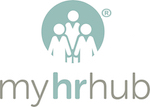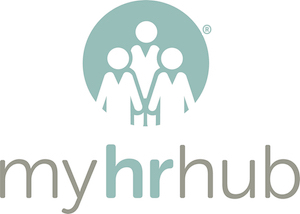
How can I prepare for the National Minimum Wage increase this year?
In April 2024, the UK is set to witness an increase in the National Minimum Wage (NMW) by almost 10%, which will present significant challenges for small businesses aiming to balance their financial commitments while retaining valuable employees. Approximately 3 million UK workers are paid minimum wage in the UK, according to the Living Wage Foundation. This is up from 1.6 million workers in April 2022 according to The Low Pay Commission. Here are some suggestions for small businesses on how you can protect your business and ensure employee retention in the face of the cost increase.
What are the National Minimum Wage and the National Living Wage?
From 1 April 2024, the National Living Wage (NLW) will be applied for the first time to those aged 21 and over. It will also achieve the target first set by the Government in 2019 – the NLW will be equal to two-thirds of median hourly pay for those aged 21 and over.
This is the largest ever increase in the minimum wage in cash terms and the first time it has increased by more than £1. While many businesses and employees are supportive of the rise in relation to the cost of living challenges, some SMEs have opposed the rise as it comes at a time of increasing cost pressures for business. A full time worker earning NMW will cost £1600 more from 1 April. Added to this are concerns over the disproportionate impact of the rise on some sectors such as retail and hospitality. The CIPD states that within a study into the impact of NMW on different sectors, 43% within the hospitality industry said pay costs were impacted last year. Within professional services sector, as a comparison, 64% said there had been no impact.
| Age | Rate from 1 April 2023 | Rate from 1 April 2024 |
| Workers aged 23 and over (NLW) | £10.42 | – |
| Workers aged 21-22 | £10.18 | – |
| National Living Wage for workers aged 21 and over | – | £11.44 |
| National minimum wage for workers aged 18-20 | £7.49 | £8.60 |
| Young workers rate for workers aged 16-17 | £5.28 | £6.40 |
| Apprentices under 19, or over 19 and in the first year of the apprenticeship | £5.28 | £6.40 |
Real living wage (voluntary)
| London Living Wage | UK Living Wage | |
| 2022/23 | £11.95 an hour | £10.90 an hour |
| 2023/24 | £13.95 an hour | £12.00 an hour |
What is the Real Living Wage?
The real living wage is a voluntary scheme which was brought in by the Living Wage campaign as the ‘only UK wage rate based on the cost of living’ and has since been adopted by many employers. BrewDog recently hit the headlines (Guardian, Jan 2024) as it had told employees that it could no longer afford to continue to pay the real living wage, in a move that was seen by some employees as abandoning its core values, it demonstrates the challenges that businesses are facing. Despite 11,000 businesses accredited with the Living Wage Foundation, the number of jobs paying below the NLW in 2024 is expected to increase.
What is the impact of failing to pay the National Minimum Wage?
Businesses need to be aware of the new rates to ensure compliance and avoid legal consequences, while also being mindful of the need to remain competitive to attract and retain people.
Failure to meet and operate the new rates will result in severe penalties from HRMC and may involve being ‘named and shamed’ on their website. For businesses operating tronc schemes, allocations from tronc can’t count towards the National or Living Wage. Employers need to be mindful that any lawful deductions from pay (such as for cost of uniform etc) do not result in a drop below NMW. Employees can bring a claim at employment tribunal for non-payment of minimum wage (or to HRMC, but not both at the same time) and are able to claim back payment for up to 2 years (subject to time limitations and qualifying criteria) so employers need to ensure they are meeting their legal obligations.
How can I keep my business competitive and keep control of costs in line with the NMW increase?
Here are some ways that business owners can prepare for the upcoming change:
- Conduct a Pay Review
Evaluate your current pay structure and identify employees who will be directly affected by the NMW increase.
Consider conducting a comprehensive review of your overall pay and reward strategy. HR consultancies can help by producing salary survey reports* so you can see how your company compares to others in the same role.
- What are the benefits of a salary survey?
They give business owners up to date information on the current rates for comparable roles, including pay and benefits so you can remain competitive and attract and retain the best people for your company.
- Budgetary Adjustments
Factor in the upcoming NMW increase when planning your budget for the upcoming financial year. Explore areas where costs can be trimmed or reallocated to accommodate the higher wage bill.
- Employee Communication
Transparently communicate the changes to your employees, ensuring they understand the reasons behind the adjustments.
Highlight any additional benefits or perks that may accompany the wage increase to maintain a positive work environment.
- Flexible Working Arrangements
Explore flexible working options, such as remote work or hybrid working, to provide employees with alternative benefits to support employee engagement and retention. Flexibility can be a valuable asset in attracting and retaining talent, with many Companies now offering remote and hybrid working as part of the employment offer.
- Investing in Employee Development
Showcase your commitment to employee growth by investing in training and development programs.
This not only enhances employee skills but also contributes to overall job satisfaction and supports retention.
- Employee Benefits and Wellbeing
Review and enhance your employee benefits package to include non-monetary perks such as health cash plans or health insurance, wellness programs, or additional leave.
A comprehensive benefits package can contribute to employee retention and employee engagement even when wage increases are modest, plus they can have a positive impact on reducing absence due to ill health.
- Efficiency and Automation
Evaluate your business processes for opportunities to improve efficiency and reduce costs.
Invest in automation and technology solutions that can streamline tasks, allowing you to maintain productivity without significantly increasing wage expenses, and allowing employees to focus on adding value and achieving your strategic goals.
Talk to us at My HR Hub if you would like a demo of how low cost/effective HR System can help you reduce the admin time/costs and provide real time data at the touch of a button.
- Government Support and Incentives
Explore available government incentives or subsidies designed to support businesses, especially SMEs facing financial challenges due to minimum wage increases.
Familiarise yourself with any tax relief or financial assistance programs that may be applicable to your business.
- Collaborative Solutions
Engage in open dialogue with your employees to understand their concerns and expectations regarding the NMW increase.
Collaboratively explore solutions that can benefit both the business and its workforce, fostering a sense of shared responsibility.
- Legal Compliance
Stay updated on the latest employment laws and ensure that your business adheres to all legal requirements.
Seek professional HR advice if needed to avoid any potential legal issues associated with wage adjustments. We offer a free consultation at My HR Hub, just contact us on hello@myhrhub.co.uk.
In conclusion, the increase in the National Minimum Wage in April 2024 presents both challenges and opportunities for small businesses in the UK. By adopting a proactive and strategic approach, businesses can not only navigate the financial implications but also foster a positive work environment that promotes employee retention and overall success. Communication, flexibility, and a commitment to employee well-being will be key in maintaining a retained, engaged and productive team amidst these changes.
*My HR Hub are offering free salary surveys for up to 5 roles for all SMEs in February. If you would like to chat with a member of our team about this, or anything relating to pay and benefits and how we can help, contact us hello@myhrhub.co.uk


Recent Comments